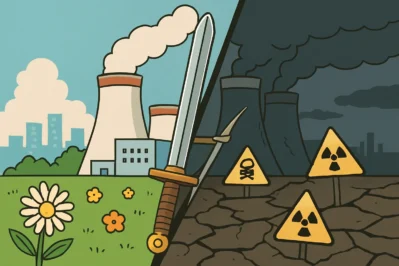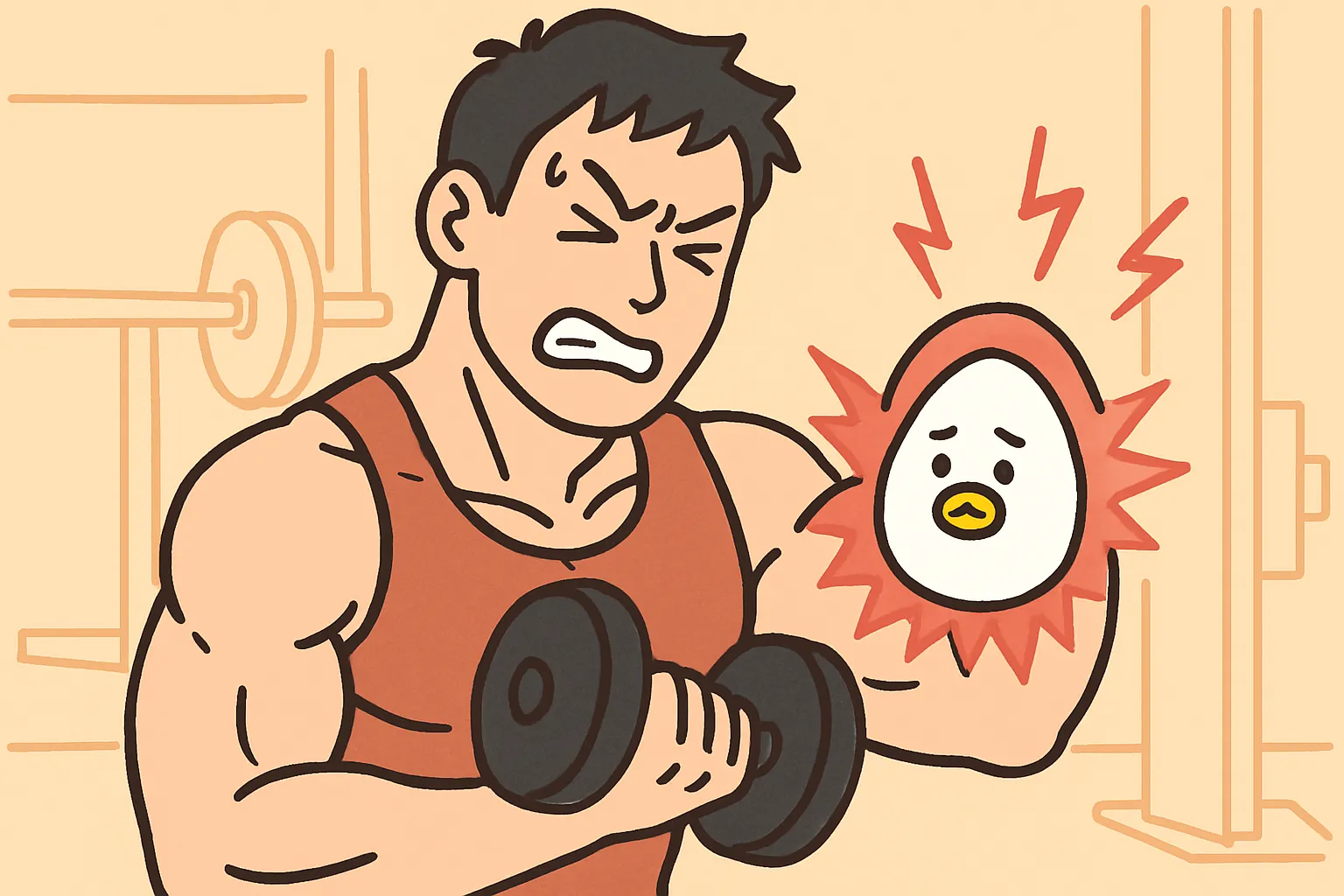Korea’s Nuclear Debate Heats Up
Hello! This is Daily Hangul, here to upgrade your Korean skills to the next level!
Today, we’re diving into a topic that requires a sophisticated command of Korean: Discussing the role of nuclear energy in a low-carbon future. This is perfect for when you want to engage in deep conversations, read opinion pieces in Korean newspapers, or follow policy debates.
Lately in Korea, the discussion around nuclear power is more intense than ever. With the government actively promoting the development of new technologies like SMRs (Small Modular Reactors) as a solution for climate change and energy independence, the topic is all over the news and social media. Let’s learn the key phrases you need to understand and participate in this crucial conversation!
Key Expressions for the Debate
Here are some advanced expressions that will make you sound like a native speaker in any serious discussion.
1. ~을/를 둘러싼 논쟁이 뜨겁다 (~eul/reul dulleossan nonjaeng-i tteugeopda)
- Meaning: The debate surrounding ~ is heated.
- Detailed Explanation: This is a fantastic phrase to open a discussion about a controversial topic.
둘러싸다means “to surround,” and뜨겁다means “hot.” Literally, “the debate that surrounds X is hot.” It perfectly captures the intensity of public discourse. You can use it for politics, social issues, and more. It’s a formal and articulate expression suitable for writing or formal speech.
2. 양날의 검 (yangnal-ui geom)
- Meaning: A double-edged sword.
- Detailed Explanation: This idiom is identical to its English counterpart and is used frequently in Korean media and discussions to describe something that has both significant benefits and serious drawbacks. When discussing nuclear energy, it’s the perfect way to acknowledge both its potential as a carbon-free energy source and the risks associated with safety and nuclear waste.
3. 장기적인 관점에서 보다 (janggijeog-in gwanjeom-eseo boda)
- Meaning: To look at it from a long-term perspective.
- Detailed Explanation: Policy discussions are all about future impact. This phrase signals that you are moving beyond immediate concerns to consider the lasting consequences.
장기적(long-term) is contrasted with단기적(short-term), and관점means “viewpoint” or “perspective.” Using this shows you are a thoughtful and strategic thinker.
4. 불가피한 선택 (bulgapihan seontaek)
- Meaning: An inevitable choice / An unavoidable option.
- Detailed Explanation: This is a powerful phrase used to argue that, despite potential downsides, a particular course of action is necessary due to a lack of better alternatives.
불가피하다means “unavoidable” or “inevitable.” When someone calls nuclear energy a불가피한 선택, they are strongly advocating for it, framing it as a crucial solution to a problem like the climate crisis.
Example Dialogue
Let’s see how these expressions are used in a real conversation about Korea’s new energy policy.
A: 요즘 뉴스에서 차세대 소형모듈원전, 즉 SMR 개발에 대한 이야기가 많네요.
(Yojeum nyuseu-eseo chasedae sohyeong-modyul-wonjeon, jeuk SMR gaebal-e daehan iyagi-ga manneyo.)
There’s a lot of talk in the news these days about developing next-generation Small Modular Reactors, or SMRs.
B: 맞아요. 원자력 발전을 둘러싼 논쟁이 다시 뜨거워지는 것 같아요. 탄소 중립을 위해서는 필요하다는 의견도 있지만, 안전성 문제 때문에 걱정하는 목소리도 크고요.
(Majayo. Wonjaryeok baljeon-eul dulleossan nonjaeng-i dasi tteugeowojineun geot gatayo. Tanso jungnib-eul wihaeseoneun piryohada-neun uigyeon-do itjiman, anjeonseong munje ttaemun-e geokjeonghaneun moksori-do keugoyo.)
That’s right. It seems the debate surrounding nuclear power generation is heating up again. Some argue it’s necessary for carbon neutrality, but there are also loud voices of concern due to safety issues.
A: 그렇죠. 정말 양날의 검인 셈이죠. 하지만 한국처럼 에너지 자원이 부족한 나라에서는 장기적인 관점에서 보면 원자력이 불가피한 선택이라는 주장도 설득력이 있어요.
(Geureochyo. Jeongmal yangnal-ui geom-in sem-ijyo. Hajiman hanguk-cheoreom eneoji jawon-i bujok-han nara-eseoneun janggijeog-in gwanjeom-eseo bomyeon wonjaryeog-i bulgapihan seontaek-iraneun jujang-do seoldeungnyeog-i isseoyo.)
I agree. It’s truly a double-edged sword. However, for a country like Korea with few energy resources, the argument that nuclear power is an inevitable choice when you look at it from a long-term perspective is also persuasive.
B: 네, 그 점도 일리가 있네요. 기술 개발과 함께 안전 규제를 어떻게 강화해 나갈지가 관건이겠어요.
(Ne, geu jeom-do illi-ga inneyo. Gisul gaebal-gwa hamkke anjeon gyuje-reul eotteoke ganghwa-hae nagalji-ga gwangeon-igesseoyo.)
Yes, that point makes sense. The key will be how we strengthen safety regulations alongside technological development.
Culture Tip & Trend Analysis
In Korea, the nuclear energy debate is not just about science; it’s deeply connected to economics and national identity.
- Energy Independence (에너지 안보 – eneoji anbo): South Korea imports over 90% of its energy. Because of this, proponents often frame nuclear power not just as an environmental tool, but as a matter of “energy security.” When you hear the phrase
불가피한 선택, it’s often linked to this idea of reducing reliance on foreign oil and gas. - An Export Industry (수출 산업 – suchul saneop): Korea is one of the few countries that builds and exports nuclear power plants (e.g., to the UAE). The push for new SMR technology is also seen as a way to secure a future high-tech export industry. The debate is therefore tied to Korea’s economic future.
- Public Sensitivity: The proximity to Japan means the Fukushima disaster has left a lasting impression on the Korean public. Therefore, safety (
안전성) is always the central counterargument. You’ll find that opponents of nuclear power will consistently emphasize the potential for disaster and the unresolved issue of nuclear waste (사용후핵연료 - sayonghu-haengnyeollyo). Understanding these underlying currents will give you a much deeper insight into the Korean debate.
Let’s Practice!
Time to put your knowledge to the test.
- Fill in the blank with the most appropriate expression from today’s lesson:
- “It provides clean energy but creates hazardous waste. Nuclear power is truly a _______________.”
(깨끗한 에너지를 제공하지만 위험한 폐기물을 만듭니다. 원자력은 정말 _______________입니다.)
- “It provides clean energy but creates hazardous waste. Nuclear power is truly a _______________.”
- Using
장기적인 관점에서 보다, try writing a short sentence about why planning for retirement is important.
Great job today! You’ve learned some incredibly useful expressions for discussing complex topics in Korean.
Now it’s your turn! Try using one of today’s phrases to share your opinion on this topic in the comments below






